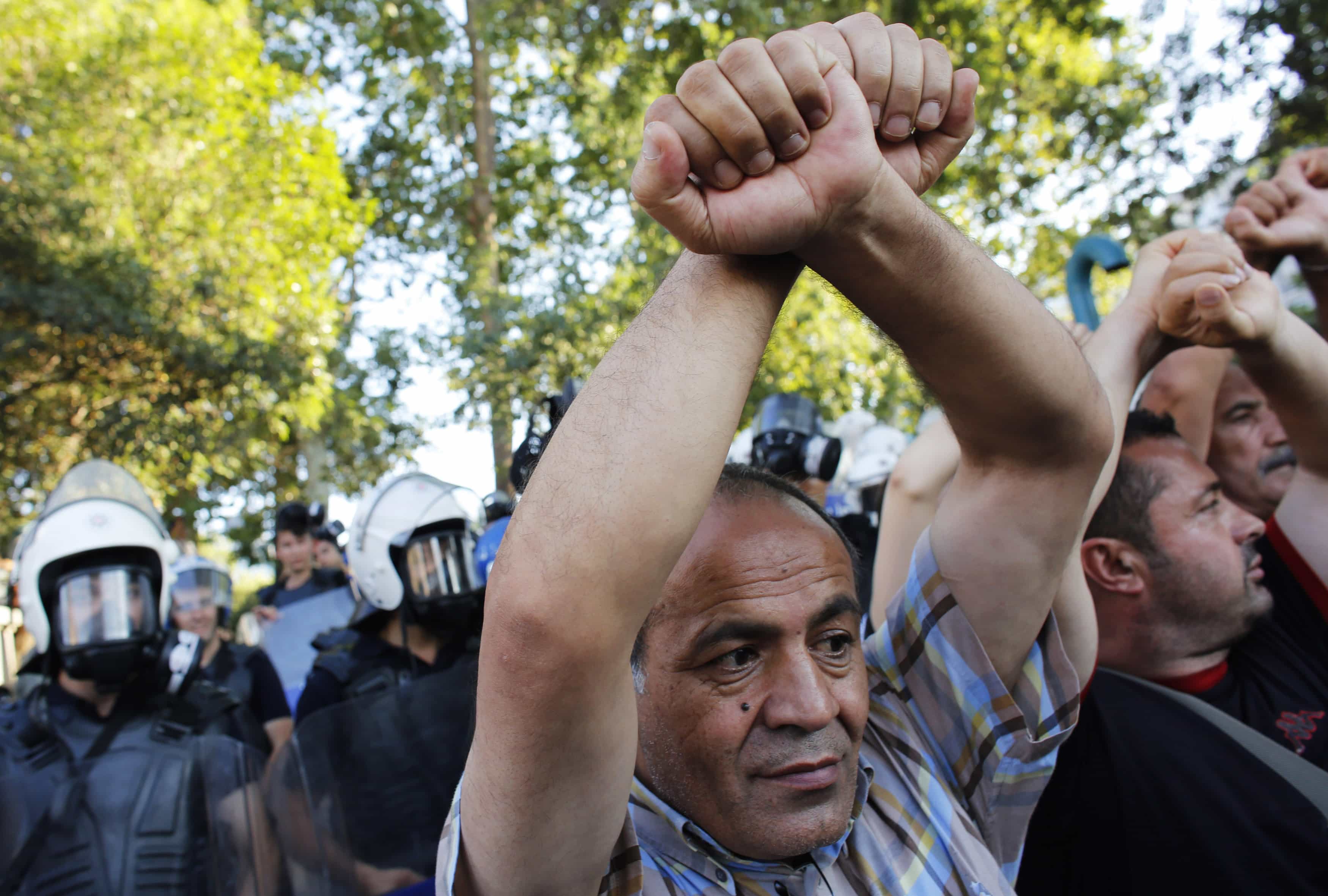On 8 July 2013, Istanbul governor Huseyin Avni Mutlu officially re-opened Gezi Park, following a 20-day shutdown intended to quell anti-government demonstrations. But merely hours after being granted access, park-goers, activists, and journalists were once again expelled.
The excitement was short-lived; the freedom to assemble, brief. On 8 July 2013, Istanbul governor Huseyin Avni Mutlu officially re-opened Gezi Park, following a 20-day shutdown intended to quell anti-government demonstrations. But merely hours after being granted access, park-goers, activists, and journalists were once again expelled.
According to the IPS Communication Foundation (Bianet), police fired water cannons, sprayed tear gas, and detained anyone who refused to leave. Reopening Gezi Park had been contingent on some conditions imposed by the governor: “We will not permit any efforts to block the park by turning into a public demonstration space…” Mutlu told a crowd at the park, according to Bianet. “We will show the law to those who say that they don’t recognize the law.”
Mutlu’s caveats directly affected members of Taksim Solidarity, an umbrella group of activists and civil society groups, who had called a forum in the park that afternoon and were detained as they walked there. According to Bianet, a total of 80 protesters were arrested that day, 48 of them affiliated with the solidarity group. In a press conference held on 9 July, Taksim Solidarity called for the release of all detainees, noting that the police intervention occurred without warning. At the press conference, Eyüp Muhçu, chairman of the Chamber of Architects noted that “restricting public access is a crime. We will not seek permission to enter any public space.”
Protestors have not been the only targets of police abuse related to Gezi park. On 6 July, at least 12 journalists were physically attacked and 2 were detained as they covered clashes between protestors and police in Taksim Square. According to the International Press Institute, news reports from Turkey say that the journalists were “allegedly beaten by police officers or wounded by rubber bullets, tear gas canisters and pepper spray.”
Reporters Without Borders has commented on the attacks, noting that “[t]he government must, as a matter of urgency, put a stop to the persecution of journalists and bloggers and punish those responsible for these abuses.”
The Journalists Union of Turkey has condemned the use of violence against both protestors and journalists, as reported by Bianet. “We condemn the police violence on civilians who peacefully wanted to use their democratic rights to express themselves and journalists who perform their profession,” the union said. The group has also provided Bianet with a description of the journalists injured on 6 July.
In response to recent police violence, people across Turkey have started “standing still” as a form of passive resistence. The trend began mid-June, when performance artist Erdem Gündüz stood silently for hours in Taksim Square, symbolically “taking a stand” against the government. The trend has garnered international attention, and has inspired an IFEX campaign coordinated in partnership with the Initiative for Free Expression – Turkey.
This article includes information from the following IFEX members: IPS Communication Foundation (Bianet), Reporters Without Borders and the International Press Institute.
